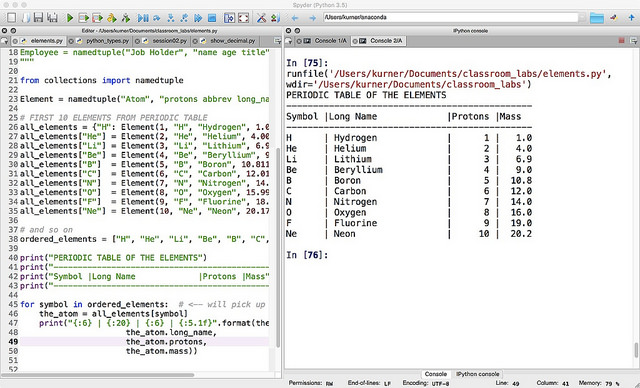Why--the secret to teaching math.
Joseph Austin
First, vocabulary matters as it typically reflects attitudes. My programs were referred to as training by my audiences. Thus, to avoid confusion with them, I referred to them as training when communicating with them. When left to myself and those assisting in the design, development and delivery, I used different vocabulary to reflect the truth.
I helped others to learn. I did not teach. I did not train. It is why I ALWAYS started with motivation. Someone must have a desire to learn and be engaged in learning (no matter the level of effectiveness) before it is possible to help them learn more effectively. That is, one cannot HELP someone do something that they are not already doing.
I wasn't being cute when I prompted the question ... "What is the purpose of math?" The manner by which you brushed against a response lacked perspective in terms of the audience I perceived was being targeted. From your response, the audience became society and physicists. Originally, I perceived the audience to be individual students much younger and much nearer the beginning of the pipeline than a physicist.
Let me tell you a story...
When I showed up at college to enroll in classes I encountered a room filled with administrators. In terms of courses, I was told what was theoretically offered. Of those, I was told what I could take and what I couldn't take. Of those I could take, I was told what I had to take and what was optional. Of each category, I was told what was actually offered (still open). Of those I was told which matched the days of the week and the times of the day for which I had an interest. And so on.
The result was dismal. I ended up enrolled in courses for which I had little interest scheduled on days and at times where my desires were in conflict.
As bad as that experience was, it included "geometrically" more choices than any school experience before college.
Now, the interesting part of the story ...
During orientation, I walked into a room filled with salespeople. All of them were engaged in the same activities. They were being as clever as they knew how to help me match my interest to their products and services.
Do you know what they were selling?
They were selling intramural sports, fraternities, academic clubs, hobby clubs, political clubs, military careers, and the such.
Does my story help you to differentiate between teaching someone and helping someone to learn?
Does my story help you to differentiate between a people with freedom and those without freedom?
You and everyone involved trying to solve your "teaching" problem are nothing but a lot of Dorothy's wearing ruby slippers. You have been carrying the solution around with you from the moment you defined the problem.
Ask yourself - how does "play" attract participants and help them to learn?
My wife, who does not know how to operate the controls for our TV slash sound system slash streaming system, learned how to operate her smart phone requiring many more procedural steps. Gee ... I wonder of the two devices, which has more relevance to her.
Those selling "play" are far superior in their approach than those mandating math or any other required school topic. It would be hard for me to believe that you and your stumped discussion group are ignorant to the way by which play is sold.
A fundamental problem with academics in the USA is that it operates outside the norms of freedom. One would expect to find our academic approach in a country like China where choices re commerce, family size, occupation, etc. are more likely to be dictated than selected.
Open your eyes. Take notice of every endeavor that is in conflict with freedom. You will discover all share the same failings.
You keep asking the same question. Perhaps if I capture it within an appropriate image you will recognize it for what it is.
Your question is ...
In a high pressure (pipe) environment with water traveling left to right, how do you get one drop of water to travel right to left?
You can discuss your problem for decades more. When you're in a car that departed from St. Louis driving west you cannot reach NYC until you turn the car around. The idea that you could somehow change the driver, control knobs, tires, etc to get to NYC is ridiculous.
The failing of helping people to learn Math is a symptom, not a problem. Solve the problem and the symptom will go away.
ENDQUOTE
Bradford Hansen-Smith
Curiosity in its natural child-like state followed by playing with what we do not know about what caught our attention to wonder in the first place.
Play is key and may not have anything to do with ST Louis or NYC. Stop the car, get out, look around and wonder.
--
You received this message because you are subscribed to the Google Groups "MathFuture" group.
To unsubscribe from this group and stop receiving emails from it, send an email to mathfuture+...@googlegroups.com.
To post to this group, send email to mathf...@googlegroups.com.
Visit this group at https://groups.google.com/group/mathfuture.
For more options, visit https://groups.google.com/d/optout.
--
Joseph Austin
On Jul 8, 2016, at 10:26 AM, Bradford Hansen-Smith <wholem...@gmail.com> wrote:Joe, thank you for the story.
Joseph Austin
On Jul 8, 2016, at 10:26 AM, Bradford Hansen-Smith <wholem...@gmail.com> wrote:
Joe, thank you for the story.
kirby urner
Soon, a kid came over. 'What are you doing, PaPa? Can I see? Can I try it?...It's the Tom Sawyer whitewashing the fence approach.


Peter Farrell

